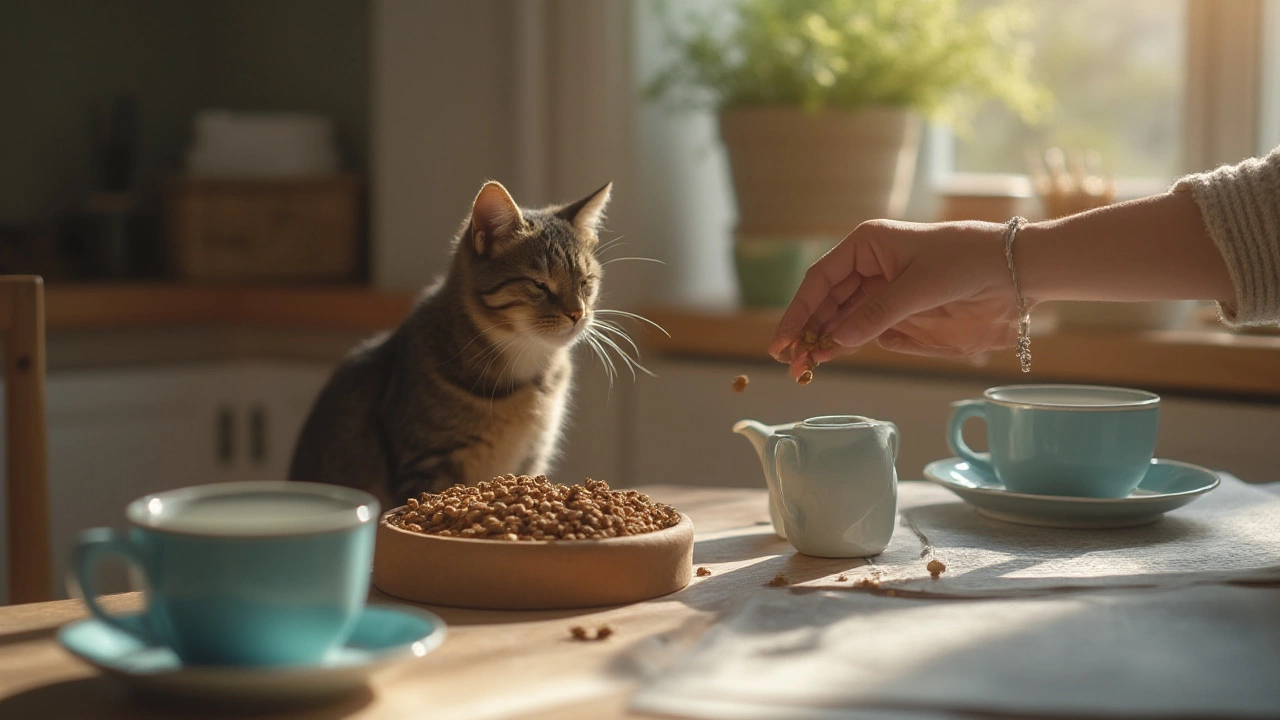Do Cats Stop Eating When They’re Full? Quick Answers for Pet Owners
Ever watched your cat nibble a few bites, walk away, then stare at you like you stole the food? You might wonder if they really know when they’re full. The short answer is yes – most cats have a natural feel for satiety, but the story has a few twists that matter for their health.
How Cats Sense They’re Full
Cats are hunters by nature. In the wild they eat small prey, finish the meal, and then wait for the next hunt. That instinct gives them a built‑in stop signal. When they’ve taken in enough protein and fat, hormones like leptin tell the brain “enough”. You’ll see this as a slower eating pace, pawing away the bowl, or turning their head away.
But domestic cats also adapt to our feeding routine. If you always leave food out, they may graze all day and never hit that “full” cue. In that case, they’ll keep snacking even when their body has enough calories. The key is to match their natural bite‑size with your feeding schedule.
When Fullness Isn’t the Whole Picture
Sometimes a cat will stop eating not because they’re satisfied, but because something’s wrong. Dental pain, nausea, or stress can make them lose interest in food. If the stop is sudden, lasts more than a day, or comes with weight loss, it’s worth a vet check.
Another red flag is overeating despite a full look. Some cats develop a drive to eat more due to hormonal imbalances or inaccurate portion sizes. If your cat consistently finishes a larger portion than you expect, re‑measure the food and consider a higher‑fiber diet to keep them feeling full longer.
Finally, age matters. Kittens and young adults have higher energy needs, so they’ll eat more often. Seniors may eat less because metabolism slows down, but they still need regular meals to avoid low blood sugar.
Here are three simple tricks to help your cat eat the right amount:
- Use measured meals instead of free‑feeding.
- Serve smaller, more frequent portions if your cat likes to graze.
- Add a little water or low‑sodium broth to dry kibble to boost satiety.
Watch the signs: a cat that walks away calmly, licks the bowl clean, and seems relaxed is likely satisfied. A cat that paws the bowl, meows loudly, or appears restless may still be hungry.
Bottom line: most cats do stop eating when they’re full, but the environment you create can change that habit. By feeding on schedule, monitoring behavior, and checking for health issues, you’ll help your feline stay healthy and happy without over‑eating.
- Morgan Ainsworth
- 0 Comments
Do Cats Stop Eating When Full? Understanding Cat Feeding Behavior
Get the facts on cat eating habits. Learn if your cat will stop eating when full, the risks of overfeeding, and how to feed your feline for best health.
View More
